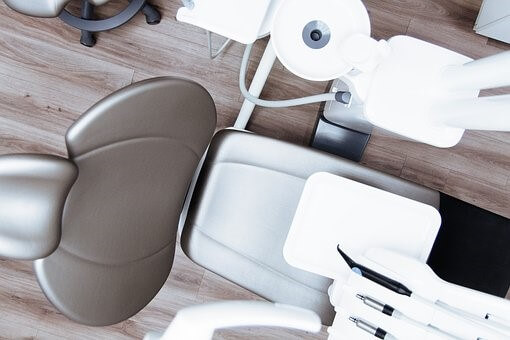Temporomandibular joint (TMJ) disorders cause issues in the area that connects your jaw to your head. TMJ symptoms include jaw pain, headache and other unpleasant sensations. Before we look at the symptoms of TMJ disorder, we need to have a quick look at the terminology – as people use a few different yet similar words to refer to this issue.
What is TMD vs TMJ?
Dentists usually say temporomandibular joints (TMJ) to refer to the joints themselves, and use the term temporomandibular disorders (TMD) to refer to the specific problems with the jaw muscles.
TMD is the correct term, but most non-dentists incorrectly use TMJ as a catch-all term for referring to jaw joints – as well as the associated disorders. Some people also use the term temporomandibular joint dysfunction (TMJD).
As it is the more commonly-used term, and we are trying to help non-dentists to understand the problems that might affect the temporomandibular joint, we will say ‘TMJ’ for this article.
What Are Some Common TMJ Symptoms?

TMJ symptoms typically influence your ability to comfortably move your jaw. The overarching symptoms are uncomfortable jaw movements and finding it difficult to fully open your mouth. The other key symptoms include the following:
- Jaw pain: TMJ pain typically focuses around the temples on the side of your head and near the ears. If you have pain in the front part of your jaw it is probably not due to a disorder of the temporomandibular joint.
- Jaw clicking or popping: One of the more alarming TMJ symptoms is clicking or popping when you try to move your jaw. You might feel or even hear an audible click if there is a disorder affecting the joint.
- Headaches: TMJ headaches feel similar to tension headaches, with pain usually concentrating around the temples. If TMJ headaches are the only symptom you have then they are easy to confuse with tension headaches.
- Lockjaw: TMJ symptoms include lockjaw, which is the inability to close your mouth when you open your jaw. If your temporomandibular joint locks regularly this is one of the most important signs of an underlying disorder.
More general TMJ symptoms include an aching, tired feeling in the face and difficulty comfortably chewing and swallowing. As a result of the pain and tenderness, some people also experience swelling within the joint.
What to Do if You Have TMJ Symptoms
Normally, a small level of discomfort will resolve itself without any intervention. Anti-inflammatories such as ibuprofen can help a lot when trying to find relief at home.
If you cannot eat, drink, sleep or have persistent and recurring pain – you may need further treatment.
When experiencing severe TMJ symptoms it is advisable to see a dentist, who can assess any problems and find a suitable treatment. Depending on the details of the problems in the joint, you may also need to see a doctor or a TMJ specialist.
Seeing someone about TMJ symptoms can be intimidating for nervous patients, which is why we offer specialist help for people who are reluctant to seek treatments at our Brighton and Hove-based clinic. Nervous patients should always seek a specialist for their dental treatments. You can book an appointment with us in the Brighton and Hove area, where you will see our supportive and comforting team members in action – simply get in touch with us to arrange your visit.
What Are the Treatment Options?
The majority of people will be able to treat their TMJ symptoms at home with ice packs or over-the-counter painkillers. If you have persistent pain and seek a professional treatment you will likely receive some or more of the following:
- Muscle relaxants: A doctor may prescribe strong muscle relaxants to loosen up your jaw. If your jaw is very painful you may also receive high-strength painkillers to further alleviate discomfort.
- Injections: Highly targeted pain-killing injections can ease pain and allow for a greater range of motion in your jaw movements. Treatment options such as this are much more common in moderate-to-severe cases.
- Surgery: Jaw surgery can permanently fix TMJ symptoms, but this is reserved for only the most severe cases – such as when TMJ symptoms arise after a heavy impact or another major injury to the jaw.
Other treatment options include physical therapy and exercises to rehabilitate the joint after an injury, or simply to try and gradually loosen up a stiff and tender joint. Many people can also benefit from psychological therapy to reduce stress.

What Causes TMJ Symptoms?
TMJ symptoms can be caused by many different problems that affect the joint. There are a lot of ways that problems can arise in the temporomandibular joints, but the most common causes include the following:
- Injury: Damage from an injury to the area is the most common cause of sudden, intense TMJ symptoms. Sports injuries, a blunt force to the head or face and other accidents can all result in a TMJ disorder.
- Age and wear: Older adults may experience stiff joints generally, and the temporomandibular joint is no exception. Singers, public speakers and people who wear out their jaw regularly can also experience symptoms.
- Teeth grinding: Progressively worsening TMJ symptoms can easily result from teeth grinding, which may be difficult to diagnose as people often grind teeth in their sleep. Stress and anxiety relief can help stop grinding.
- Stress: Tension in the jaw can manifest psychologically, so stress and other conditions can easily lead to problems. Practising relaxation techniques or getting better sleep can reduce stress and alleviate a range of other issues.
- Ear infection: People do not realise that an ear infection can spread to the jaw, which is another common cause of pain and difficulty moving. A tooth infection can spread to the jaw, and even the ears and rest of the body, too.
Some people also have problems with TMJ symptoms that come from malocclusion, which is what dentists call a bad bite. Underbites and overbites, the more severe types of malocclusions, are most likely to cause TMJ symptoms.
TMJ Symptoms Usually Pass Without Issue
If you have a sore jaw or other TMJ symptoms you can try to relax and treat the issue yourself at home in most cases. Severe or persistent cases that impact your quality of life (such as your ability to eat, drink or sleep) may require an assessment by a dentist, doctor or even a TMJ specialist.
Temporomandibular disorders (TMD) are relatively common but it can be daunting to seek treatment for problems in the temporomandibular joint (TMJ), – especially for nervous patients. We offer specialist treatments for nervous patients with TMJ symptoms in the Brighton and Hove area – contact us for an appointment.
FAQs and Useful Information
The following are some common questions and useful information about TMJ and the services we provide:
01273 900933
hello@hovedentalclinic.co.uk
Mon – Fri: 8:30 – 18:00
Sat: By appointment only
Sun: Closed






















